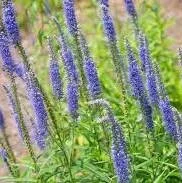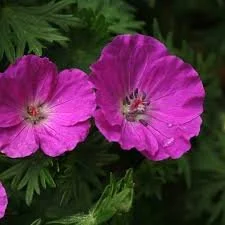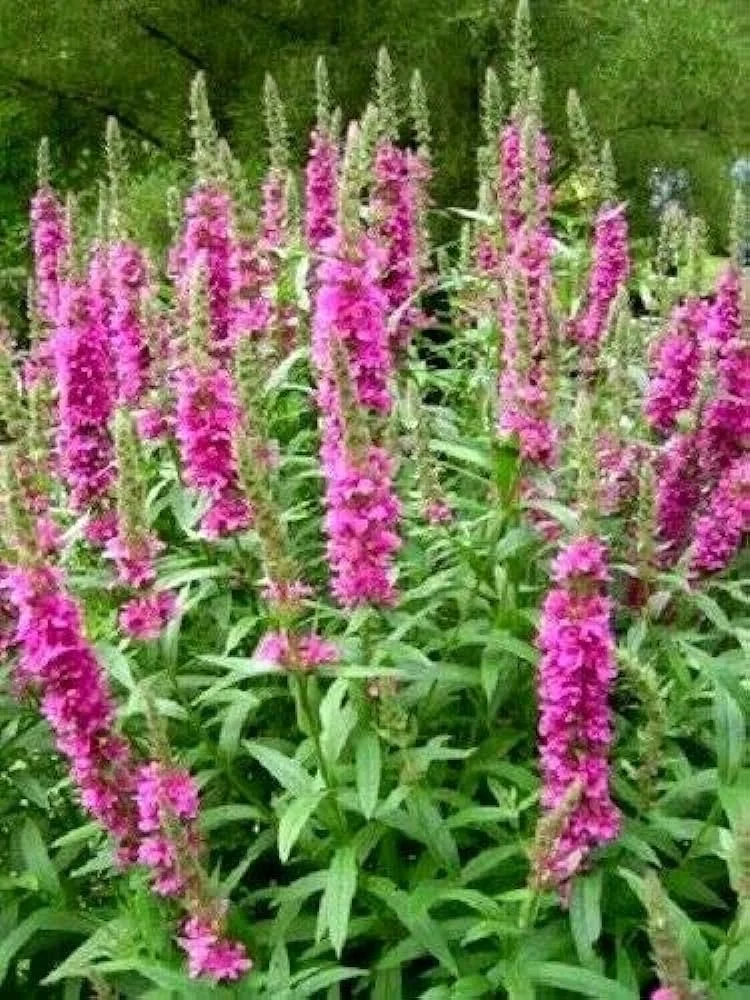Pollinator pattern No. 2
Pollinator Garden Pattern No. 2
Overview
The plants in this pattern encourage the continuity of seasonal color. The Veronica and Coreopsis are the first to flower in June. The Coreopsis adds value with its very narrow, lacey, medium green foliage.
The Geranium and Lythrum are close to flowering. Each plant at this time contributing excellent foliage to the plant pattern. The Geraniums rounded, slightly lobed, glossy leaves develop densely on its mounded growth habit. The Lythrum is upright with narrow foliage close to the stem. They are both covering the soil and enhancing the Vernonica and Coreopsis.
Here’s the seasonal carry over. As the Veronica flowers fade the Geranium is covered in round, flat purplish/red flowers and the Lythum has vertical spiked rose/pink flowers. This tight group of plants suppresses weeds but best of all they begin and continue to flower lightly into late Jully as the next group of plants begins their season of color. Quite a support system for color but most importantly great complimentary textures.
Stewardship
Please no dead heading! The fading flowers and developing seed heads are too nice and add super architectural content to the garden.
In 4 to 5 years you could thin the Lythrum. In moist soils it continues to expand. In April as it’s emerging from the ground dig off some of the side growth to reduce the size of the plants diameter. You could do the same practice with the Geranium and Coreopsis. Just enough to keep the plants from dominating the planting but you do want them to live tightly together.
Use thoughtful, good gardening judgement on Earth! . In mid-March look for a nice day and start cutting the plants from the top to the bottom, about 3 inches from the ground. Then you can mow everything with a mulching mower breaking the remnant plant material into smaller pieces.
There’s your mulch!! Plants have been self-mulching since they first appeared!
*These garden plans can be followed explicitly or adjusted to meet individual needs, unlocking rich perennial landscape designs for individualization and creativity.
Pattern profile:
Exposure: Sun
Colors: Yellow, Purple, White, Pink
Bloom Time: Mid-June to Mid-July
Veronica x hybrid ‘Shorty’
Exposure: Sun/Part Shade
Color: Purple
Height:
Width: 24”
Bloom Time: Mid-June
POLLINATOR NOTES:
The Veronica is well received by native bees, native wasps, native flies and many moths.
Keep watch for Goldfinches, Cardinals, Chickadees and Nuthatches.
Coreopsis verticillata ‘Zagreb’
Exposure: Sun
Color: Yellow
Height:
Width:
Bloom Time: Mid-July
POLLINATOR NOTES:
The Coreopsis is captivating to butterflies and good for many bees. There's not much specific information online about particular bees that favor it.
Geranium x hybrid ‘Tiny Monster’
Exposure: Sun
Color: Purple/Magenta
Height:
Width:
Bloom Time: Mid-July
POLLINATOR NOTES:
The Geranium is captivating to butterflies and good for many bees. There's not much specific information online about particular bees that favor it.
Lithium alatum
Exposure: Sun
Color: Purple/Magenta
Height:
Width:
Bloom Time: Mid-July
POLLINATOR NOTES:
The Geranium is captivating to butterflies and good for many bees. There's not much specific information online about particular bees that favor it.





